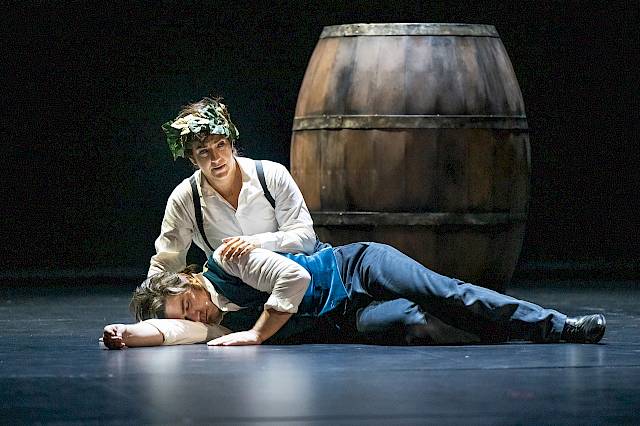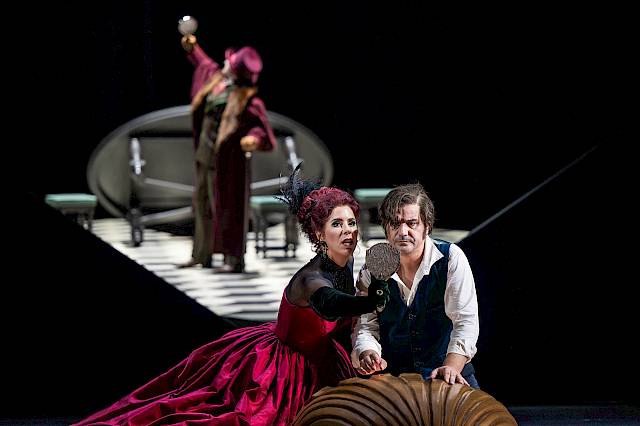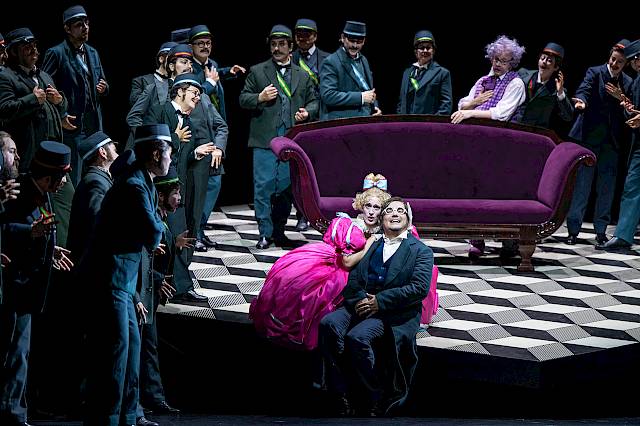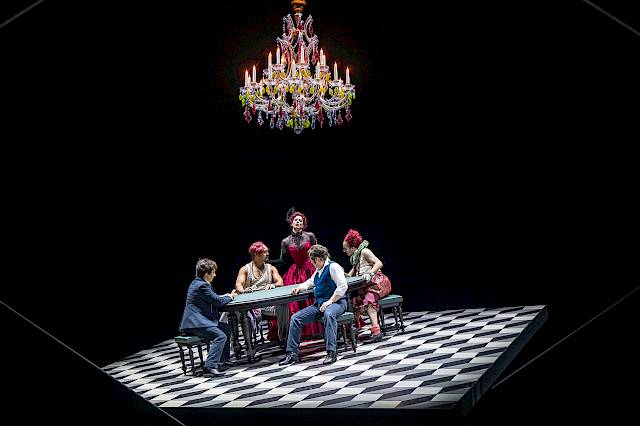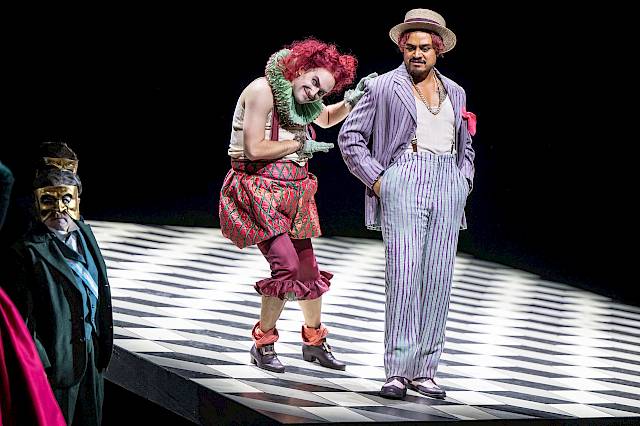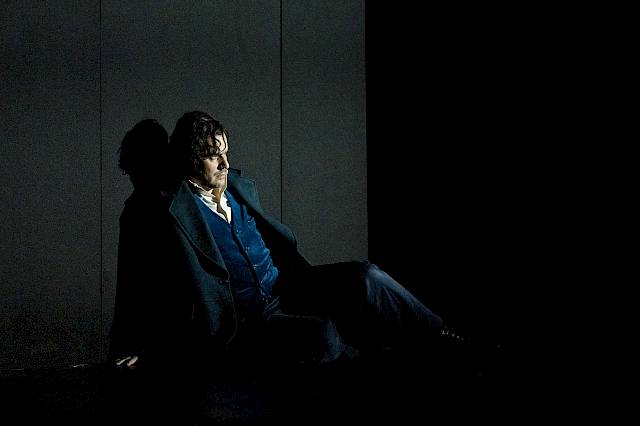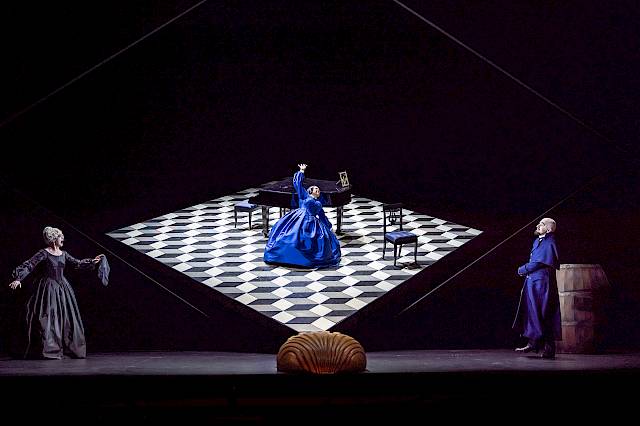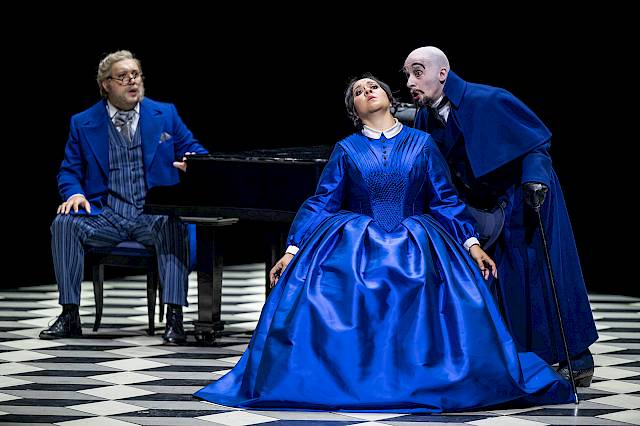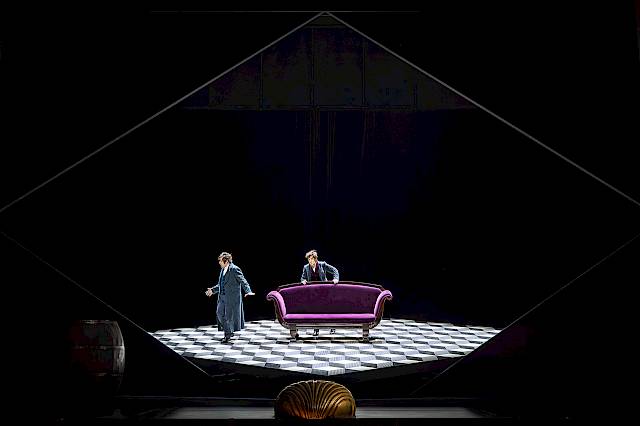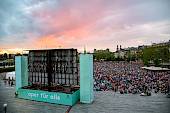Les Contes d’Hoffmann
Opéra-fantastique in five acts by Jacques Offenbach (1819-1880)
Libretto by Jules Paul Barbier after the drame fantastique of the same name
by Barbier and Michel Florentin Carré
In French with German and English surtitles. Duration approx. 3 H. 30 Min. incl. intermissions. Introduction 45 min before the performance.
Dates & Tickets
Past performances
Good to know
Opera Vision will live stream the final performance of Les Contes d’Hoffmann on 12th of July 2025 from the opera house. The recording will be available afterwards as video-on-demand.
More information
Les Contes d’Hoffmann
Abstract
Les Contes d’Hoffmann
In his final opera, Jacques Offenbach made E.T.A. Hoffmann, the most famous poet of the Romantic period, into his main character. The poet explores the threshold between reality and fantasy in a fascinating way in his magical-surreal tales. The opera masterfully combines operetta, sentimental opéra comique and romantic-fantastic opera. Original melodic inventions merge with gripping drama and, of course, Offenbach’s subtle irony interrupts his main character’s rapturous states.
Hoffmann, the poet, is torn between art and life, love and fantasy, dream and reality. His love for Stella, the singer, remains unrequited, and he takes refuge in alcohol and the world of his imagination. Over the course of a wine-soaked evening, he tells his friends of three fantastical love affairs. Olympia, the immaculate beauty he fell head over heels in love with – only to discover that the woman he so desperately wanted was a doll. Antonia, who was consumed by feverish song and died in Hoffmann’s arms. And Giulietta, the Venetian courtesan, who swore him undying love and seduced him, all with the singular goal of stealing his reflection. Each time, Hoffmann failed – himself, in love, and against his diabolical adversary.
The premiere of this staging by Andreas Homoki took place online in the spring of 2021, due to coronavirus pandemic; this season the production finally bows on stage before an audience. Saimir Pirgu made a convincing debut in the title role, and he returns as Hoffmann in this revival. As at the premiere, Italian conductor Antonino Fogliani is at the podium of the Philharmonia Zürich.
Which version?
Jacques Offenbach left his last opera The Tales of Hoffmann unfinished. Since the posthumous premiere in 1881, different versions have been issued by various publishers, and to this day every new production has to decide in favour of one of the available versions. The Opernhaus Zürich has chosen the version published by the two editors Michael Kaye and Jean-Christophe Keck. It takes into account all the manuscripts left behind by Offenbach (some of which were only discovered in 1993).
Les Contes d’Hoffmann
Synopsis
Les Contes d’Hoffmann
Act One
The Muse would like to win Hoffmann back – both for herself and for art. To this end, she impersonates the student Nicklausse so as to enable her to accompany Hoffmann on his adventures.
While Mozart’s Don Giovanni is being performed at the theatre next door, a group of students gather to spend an evening of carousing at Luther’s Wine Cellar. They are joined by Hoffmann and Nicklausse. Hoffmann has fallen for Stella, who is singing the role of Donna Anna. Stella’s servant is supposed to be bringing Hoffmann a letter containing the key to her dressing room, but Lindorf, who also desires the singer, intercepts the envelope with a view to paying her a visit himself.
Hoffmann keeps everyone amused by singing the ballad of Kleinzach. Yet his thoughts constantly return to Stella.
He eventually starts talking about three of the women he has known in his life.
Act Two
In the physicist Spalanzani’s house, Hoffmann comes across the beautiful Olympia. He chooses to ignore Nicklausse’s ironic remarks about Olympia being just a doll. Coppélius, who introduces himself as a friend of Spalanzani’s and is a dealer in optical devices and artificial eyes, sells the poet a pair of miracle spectacles, thanks to which Hoffmann indeed finds Olympia’s performance all the more beguiling. He confesses his feelings to Olympia – and interprets her monosyllabic responses of “yes, yes” as passionate protestations of love. During the fast waltz that he then dances with Olympia, the doll rapidly becomes uncontrollable, and Hoffmann loses his spectacles.
In the meantime, Coppélius, who made Olympia’s eyes, has discovered that the cheque with which Spalanzani intended to fob him off is worthless. Enraged, he returns and destroys the doll.
Hoffmann realises that he has been in love with an automaton.
Act Three
Antonia, Crespel the violin maker’s daughter, is singing a wistful song. Her father, however, forbids her to sing, as she is risking her life – Antonia’s mother, a celebrated singer, died of the same mysterious disease.
Crespel impresses on his servant Frantz not to let anybody into the house. Frantz, however, is hard of hearing, and when Hoffmann appears, he gives him a warm welcome. Antonia and Hoffmann fall into one another’s arms.
When Crespel returns, Hoffmann hides and witnesses Doctor Miracle examining Antonia. Crespel turns Miracle out of the house, as he believes that the mysterious doctor is responsible for his wife’s death and that he will also kill Antonia.
Hoffmann has now learned that Antonia is doomed to die if she continues to sing. Alone with her again, he makes her promise to relinquish her singing career.
Scarcely has Hoffmann left than Miracle returns and describes to Antonia the splendid life of a singer in glowing colours. Antonia attempts to resist the temptation with all her strength and to keep her promise, but when her departed mother appears, she joins in her song – and dies.
Act Four
Hoffmann has decided to renounce all romantic sentiments and to devote himself entirely to transient pleasures. Then, however, he encounters the courtesan Giulietta, who maintains mysterious links to Capitaine Dapertutto. Giulietta introduces Hoffmann to her other guests – these include Schlemihl, who is in possession of her key.
Dapertutto orders Giulietta to seduce Hoffmann and demand that he give her his reflection; she has already procured Schlemihl’s shadow for Dapertutto in the same manner. When Giulietta hesitates, Dapertutto tells the courtesan how disparagingly Hoffmann has spoken of her. Giulietta now agrees to Dapertutto’s request and easily succeeds in seducing Hoffmann.
In order to gain possession of Giulietta’s key, Hoffmann kills Schlemihl in a duel.
Schlemihl’s death is discovered; Hoffmann is forced to flee. Giulietta implores him at least to entrust his shadow to her if he has to leave her. Hoffmann consents – and realises that Giulietta has deceived him.
Act Five
Back at the wine cellar, Hoffmann has finished telling his stories, and the performance of Don Giovanni has also come to an end. After her triumph as Donna Anna, Stella has waited for Hoffmann to no avail. Together with Lindorf, she now appears in the wine cellar. Hoffmann, however, is drunk and mocks both of them as he sings the last verse of the ballad of Kleinzach.
When Hoffmann learns that Stella has written him a letter that he never received, he is distraught.
Will Stella forgive him?
Biographies
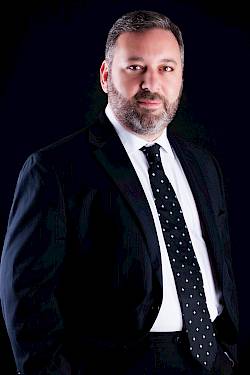
Antonino Fogliani, Music Direction
Antonino Fogliani
Antonino Fogliani ist ein international gefragter Belcanto-Dirigent aus Italien. Nach seinem Studium am Mailänder Konservatorium und an der Accademia Chigiana in Siena gab er sein vielbeachtetes Debüt beim Rossini Opera Festival in Pesaro mit Il viaggio a Reims. Es folgten weitere Dirigate in Pesaro sowie Gastengagements an den Opernhäusern von Mailand, Venedig, Rom, Neapel, am Maggio Musicale Fiorentino, beim Donizetti-Festval in Bergamo, beim Wexford Festival, in Avignon, Bregenz, an der Opéra-Comique in Paris sowie in Antwerpen, Amsterdam, Barcelona, Straßburg, Toulouse, Monte-Carlo, Oslo, Moskau (Bolshoi), Houston, Montréal und St. Gallen. 2004 debütierte er beim Rossini-Festival in Wildbad, dessen musikalische Leitung er seit 2011 inne hat. Seit der Spielzeit 2017/18 ist Antonino Fogliani als Erster Gastdirigent an der Deutschen Oper am Rhein in Düsseldorf engagiert und leitete dort Aufführungen von La Cenerentola, Die Entführung aus dem Serail, Les Contes d’Hoffmann, Lucia di Lammermoor, Madama Butterfly und Pagliacci / Cavalleria rusticana. In jüngster Zeit gastierte Antonino Fogliani zudem u.a. mit Turandot an der Bayerischen Staatsoper in München, mit Umberto Giordanos Fedora am Grand-Théâtre de Genève, mit Norma an der Wiener Staatsoper, mit I Capuleti e i Montecchi an De Nationale Opera in Amsterdam, sowie mit La fanciulla del West an der Staatsoper in Hamburg. In Zürich dirigierte er zuletzt Il turco in Italia sowie die IOS-Produktion Il barbiere di Siviglia am Theater Winterthur.
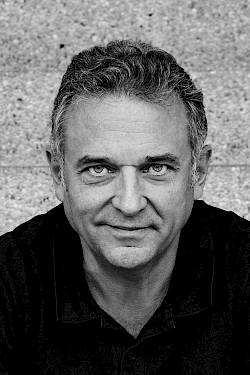
Andreas Homoki, Director
Andreas Homoki
Andreas Homoki was born into a Hungarian musical family in 1960 in Germany, and studied school music and German in Berlin (West). He joined the Oper Köln as an assistant director and evening performance supervisor in 1987, remaining there until 1993. From 1988-1992 he was engaged as an assistant professor in scenic instruction at the opera school of the Musikhochschule Köln, where he created his first stage productions. He received his first invitation to stage direct in Geneva in 1992, and his production there of Die Frau ohne Schatten received international acclaim. That production would later appear at the Parisian Théâtre du Châtelet, and would go on to with the French critics’ prize in 1994. He was a freelance stage director from 1993 to 2002, and his works appeared in Cologne, Lyon, Leipzig, Basel, Berlin, Amsterdam, and Munich. He made his debut at the Komische Oper Berlin in 1996 with Falstaff, followed by productions of Die Liebe zu drei Orangen in 1998 and Die lustige Witwe in 2000. He was appointed principal stage director of the Komische Oper Berlin in 2002, succeeding Harry Kupfer in that role, and was further named Intendant in 2004. In addition to his work at the Komische Oper Berlin, he appeared as a guest at the Théâtre du Châtelet in Paris, the Bavarian State Opera, the New National Theatre Tokyo, at the Sächsische Staatsoper Dresden, and at the Hamburg State Opera. In July 2012, he directed a production of Marc-Antoine Charpentier’s David et Jonathas at the Festival in Aix-en-Provence, with musical direction by William Christie. That production would later appear in Edinburgh, Paris, and New York. Andreas Homoki has been Intendant of the Opernhaus Zürich since the beginning of the 2012/13 season, and has directed productions of Der fliegende Holländer (a coproduction with La Scala in Milan and the Norwegian Stage Opera in Oslo), Lady Macbeth of Mzensk, Fidelio, Juliette, Lohengrin (a coproduction with the Viennese State Opera), Luisa Miller (Hamburg Stage Opera), Wozzeck, My Fair Lady (Komische Oper Berlin), I puritani, Medée, Das Land des Lächelns, Lunea, which was named world premiere of the 2017/18 season by the Opernwelt magazine, Forza del Destino, Sweeney Todd by Stephen Sondheim, Nabucco, Iphigénie en Tauride, Simon Boccanegra, Les Contes d’Hoffmann and, most recently, Salome. Andreas Homoki has been a member of the Akademie der Künste in Berlin since 1999.
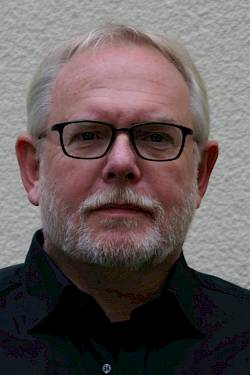
Wolfgang Gussmann, Stage design
Wolfgang Gussmann
Wolfgang Gussmann arbeitet seit 1979 freischaffend als Bühnen- und Kostümbildner. Eine langjährige Zusammenarbeit verbindet ihn mit den Regisseuren Andreas Homoki und Willy Decker, für den er von 2009 bis 2011 auch als künstlerischer Berater bei der Ruhrtriennale wirkte. Als regelmässiger Gast schafft er Ausstattungen u. a. an der Wiener Staatsoper, der Bayerischen Staatsoper München, der Hamburgischen Staatsoper, der Semperoper Dresden, der Staatsoper Stuttgart, der Deutschen und der Komischen Oper Berlin, der Ruhrtriennale, bei den Salzburger Festspielen, an der Opéra Bastille, am Théâtre du Châtelet in Paris, an der San Francisco Opera und der Metropolitan Opera New York sowie an den führenden Opernhäusern Italiens und Spaniens und in Genf, Amsterdam, Oslo, Kopenhagen und Brüssel. Wichtige Produktionen waren u. a. die Uraufführung von Das Schloss und Hänsel und Gretel an der Deutschen Oper Berlin, Die Frau ohne Schatten und Orphée in Genf, Wozzeck, Elektra, Carmen und Katja Kabanowa in Amsterdam, Rigoletto, Salome, Pique Dame und Pelléas et Mélisande in Hamburg, Eugen Onegin, Der fliegende Holländer, Tannhäuser und Boris Godunow in Paris, Lulu und Billy Budd an der Wiener Staatsoper sowie Die tote Stadt bei den Salzburger Festspielen. Für seine Verdienste um das kulturelle Leben in Frankreich wurde ihm 2001 der Orden «Chevalier des Arts et des Lettres» verliehen. In Zürich stattete er Willy Deckers Inszenierung von Il ritorno d’Ulisse in patria und The Turn of the Screw aus sowie Andreas Homokis Inszenierungen des Fliegenden Holländers, Lohengrin, Das Land des Lächelns und Nabucco aus.
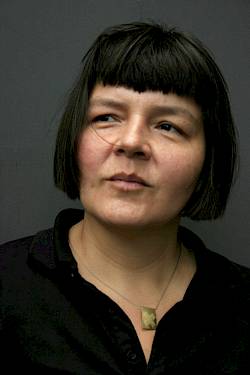
Susana Mendoza, Costumes
Susana Mendoza
Susana Mendoza begann ihre Karriere als Kostümassistentin in Köln, wo sie u. a. mit Gottfried Pilz und Andreas Reinhardt zusammenarbeitete. Von 1991 bis 1997 studierte sie Kostümbild an der Hochschule der Künste in Berlin. In dieser Zeit begann ihre Zusammenarbeit mit Wolfgang Gussmann, die sie u. a.an die Deutsche Oper Berlin, die Wiener und die Bayerische Staatsoper, die Pariser Opéra Bastille und an die Nederlandse Opera führte. Ausserdem kreierte sie die Kostüme für Manon Lescaut an der Nationale Reisopera in Rotterdam. Sie arbeitete u. a. mit Reto Nickler und seit 1998 intensiv mit der Regisseurin Sabine Hartmannshenn bei Produktionen wie Peter Grimes in Hamburg, Cavalleria rusticana/Pagliacci und Schule der Frauen am Theater Lübeck, Lulu an der Oper Göteborg, Werther in Nürnberg sowie Lucia di Lammermoor am Staatstheater Kassel. Weitere Arbeiten führten sie nach Innsbruck, Salzburg, Wien, Barcelona, New York, Düsseldorf und Köln sowie zur Ruhrtriennale. Sie entwarf die Kostüme für The Rake’s Progress und Lohengrin an der Deutschen Oper am Rhein, Falstaff und Die Fledermaus am Deutschen Nationaltheater in Weimar, Rinaldo und Il tabarro in Köln, Giovanna d’Arco und Romeo und Julia auf dem Dorfe in Bielefeld sowie Der fliegende Holländer, Il ritorno d’Ulisse in patria, The Turn of the Screw, Das verzauberte Schwein, Das Land des Lächelns und Nabucco am Opernhaus Zürich. Zuletzt folgten die Kostümentwürfe für Siegfried in Chemnitz, Das Land des Lächelns am Aalto-Theater in Essen, Die Blume von Hawaii, La Belle Hélène und Barbiere di Siviglia in Hagen, Les Contes d’Hoffmann in Zürich und Orphée aux enfers in Chemnitz.
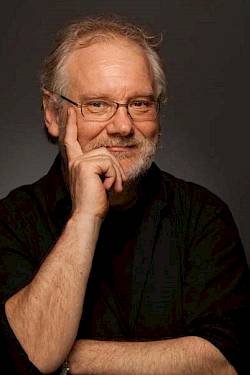
Thomas Bruner, Co-set designer
Thomas Bruner
Thomas Bruner ist in München geboren und in Garmisch-Partenkirchen aufgewachsen.
Nach einer Ausbildung zum Schreiner an den Schulen für Holz und Gestaltung des Bezirks Oberbayern studierte er an der Fachhochschule München Architektur. Seit 1992 ist er als freier Bühnenbildner tätig, u.a. regelmässig beim Kultursommer Garmisch-Partenkirchen.
Als künstlerischer Mitarbeiter von Harald Thor und Wolfgang Gussmann arbeitet er weltweit an diversen Opern- und Schauspielhäusern wie der Staatsoper München, der Wiener Staatsoper, dem Teatro Real in Madrid, der Opera Bastille in Paris, der Metropolitan Opera in New York, dem Teatro Colón in Buenos Aires und dem New National Theatre Tokyo. Zuletzt entstanden gemeinsam mit Wolfgang Gussmann die Bühnenbilder zu Nabucco und Les Contes d’Hoffmann (beide Regie: Andreas Homoki) am Opernhaus Zürich sowie in selbstständiger Arbeit Die Bernauerin bei den ORFF Festspielen (Regie: Angela Hundsdorfer). Seit 2009 leitet er gemeinsam mit Pe Hebeisen die künstlerische Umgestaltung des Michael-Ende-Kurparks in Garmisch-Partenkirchen nach eigenen Konzepten.
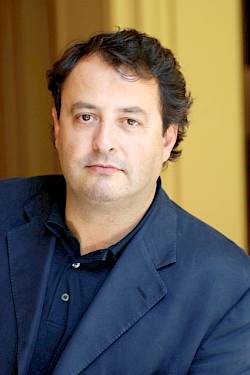
Franck Evin, Lighting designer
Franck Evin
Franck Evin, geboren in Nantes, ging mit 19 Jahren nach Paris, um Klavier zu studieren. Nachts begleitete er Sänger im Café Théâtre Le Connetable und begann sich auch für Beleuchtung zu interessieren. Schliesslich entschied er sich für die Kombination aus Musik und Technik. Dank eines Stipendiums des französischen Kulturministeriums wurde er 1983 Assistent des Beleuchtungschefs an der Opéra de Lyon. Hier arbeitete er u. a. mit Ken Russel und Robert Wilson zusammen. Am Düsseldorfer Schauspielhaus begann er 1986 als selbstständiger Lichtdesigner zu arbeiten und legte 1993 die Beleuchtungsmeisterprüfung ab. Besonders eng war in dieser Zeit die Zusammenarbeit mit Werner Schröter und mit dem Dirigenten Eberhard Kloke. Es folgten Produktionen u. a. in Nantes, Strassburg, Paris, Lyon, Wien, Bonn, Brüssel und Los Angeles. Von 1995 bis 2012 war er Künstlerischer Leiter der Beleuchtungsabteilung der Komischen Oper Berlin und dort verantwortlich für alle Neuproduktionen. Hier wurden besonders Andreas Homoki, Barrie Kosky, Calixto Bieito und Hans Neuenfels wichtige Partner für ihn. Im März 2006 wurde Franck Evin mit dem «OPUS» in der Kategorie Lichtdesign ausgezeichnet. Seit Sommer 2012 arbeitet er als künstlerischer Leiter der Beleuchtungsabteilung an der Oper Zürich. Franck Evin wirkt neben seiner Tätigkeit in Zürich weiterhin als Gast in internationalen Produktionen mit, etwa an den Opernhäusern von Oslo, Stockholm, Tokio, Amsterdam, München, Graz sowie der Opéra Bastille, der Mailänder Scala, dem Teatro La Fenice, der Vlaamse Opera und bei den Bayreuther Festspielen.
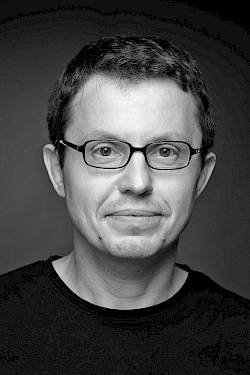
Janko Kastelic, Chorus Master
Janko Kastelic
Janko Kastelic ist ein kanadisch-slowenischer Dirigent, Chorleiter, Pianist und Organist. Er begann seine musikalische Ausbildung in Kanada am Royal/Western Conservatory of Music und der St. Michael’s Choir School. Er hat einen Abschluss in Dirigieren, Komposition und Musiktheorie von der Universität Toronto und setzte sein Studium an der Hochschule für Musik und Darstellende Kunst in Wien fort. Seit 2017 ist er Chordirektor am Opernhaus Zürich. Er war einer der Kapellmeister der Wiener Hofmusikkapelle, Studienleiter des JET-Programms für junge Sänger am Theater an der Wien und Assistent bei den Bayreuther Festspielen sowie Gastchordirektor an der Hamburgischen Staatsoper. Zu den Positionen, die er im Lauf seiner Karriere bekleidet hat, gehört auch die Stelle des Generalmusikdirektors und Operndirektors am Slowenischen Nationaltheater Maribor, des Zweiten Chordirektors an der Wiener Staatsoper sowie des Korrepetitors an der Opéra National de Paris. Er war Assistenzprofessor an der Universität Ljubljana und Mentor an der Musik und Kunst Privatuniversität der Stadt Wien. Seine künstlerischen Leistungen sind dokumentiert auf mehreren Live-Aufnahmen, darunter Tschaikowskis Pique Dame und Schönbergs Moses und Aron. Er arrangierte und dirigierte auch Werke für die Feierlichkeiten zum Mozartjahr 2006. Zu seinen Arbeiten beim Klangbogen-Festival in Wien gehört die europäische Erstaufführung von Blochs Macbeth. Janko Kastelic ist auch ein engagierter Pädagoge, der sich der Förderung der nächsten Generation von Musikerinnen und Musikern verschrieben hat.
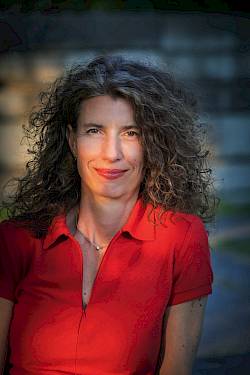
Beate Breidenbach, Dramaturgy
Beate Breidenbach
Beate Breidenbach studierte zuerst Violine, dann Musikwissenschaft und Slawistik in Nowosibirsk, Berlin und St. Petersburg. Nach Assistenzen an der Staatsoper Stuttgart und der Staatsoper Unter den Linden Berlin wurde sie als Musikdramaturgin ans Theater St. Gallen engagiert, drei Jahre später wechselte sie als Dramaturgin für Oper und Tanz ans Theater Basel. Anschliessend ging sie als Operndramaturgin ans Opernhaus Zürich, wo sie bisher mit Regisseurinnen und Regisseuren wie Calixto Bieito, Dmitri Tcherniakov, Andreas Homoki, Herbert Fritsch, Nadja Loschky, Kirill Serebrennikov und anderen arbeitete und die Entstehung neuer Opern von Pierangelo Valtinoni, Michael Pelzel, Samuel Penderbayne und Jonathan Dove betreute. Gastdramaturgien führten sie u.a. an die Potsdamer Winteroper (Le nozze di Figaro, Regie: Andreas Dresen), zum Schweizer Fernsehen (La bohème im Hochhaus) und 2021 an die Opéra de Génève (Krieg und Frieden, Regie: Calixto Bieito). Mit Beginn der Spielzeit 2026/27 wird sie als Chefdramaturgin an die Deutsche Oper Berlin wechseln.
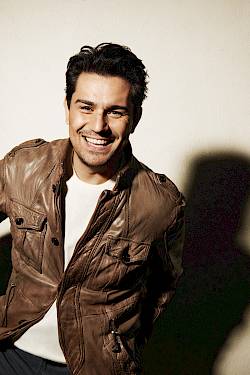
Saimir Pirgu, Hoffmann
Saimir Pirgu
Saimir Pirgu wurde in Albanien geboren und studierte am Konservatorium «Claudio Monteverdi» in Bozen bei Vito Brunetti. Claudio Abbado holte den damals 22-Jährigen als Ferrando (Così fan tutte) nach Ferrara – 2004 debütierte er mit dieser Partie bei den Salzburger Festspielen. Er arbeitete mit Dirigenten wie Riccardo Muti, Lorin Maazel, Mariss Jansons, Seiji Ozawa, Antonio Pappano, Franz Welser-Möst, Christian Thielemann und Daniele Gatti und trat im Konzert u. a. im Concertgebouw Amsterdam mit den Wiener Philharmonikern, im Auditorium Santa Cecilia in Rom und im Musikverein Wien auf. Mittlerweile ist er an den bedeutendsten Opernhäusern der Welt engagiert. Er sang die Titelrolle in Ernani bei den Bregenzer Festspielen, Don José in Carmen unter der Leitung von Zubin Mehta in Bangkok und die Titelrollen in Les Contes d’Hoffmann am Opernhaus Zürich, in Werther am Tokyo New National Theatre sowie in La damnation de Faust am Bolschoi-Theater in Moskau. Ausserdem sang er Pinkerton (Madama Butterfly) in Zürich, Lenski (Eugen Onegin) in Rom, die Titelrolle in Faust am Sydney Opera House und am Opernhaus Zürich, Chevalier Des Grieux (Manon) am Théâtre des Champs-Élysées in Paris, Gabriele Adorno (Simon Boccanegra) am Teatro di San Carlo in Neapel, Rodolfo (La bohème) am Royal Opera House London und Riccardo (Un ballo in maschera) mit dem Israel Philharmonic Orchestra. 2024 markierte sein Debüt als Cavaradossi (Tosca) in Rom sowie die Erscheinung seines Soloalbums Saimir. Am Opernhaus Zürich war er zuletzt als Don José unter der Leitung von Gianandrea Noseda zu erleben.
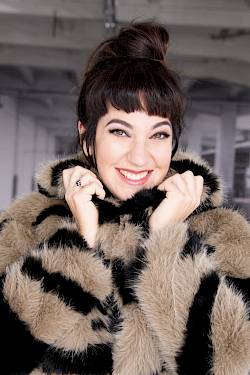
Marina Viotti, La Muse / Nicklausse
Marina Viotti
Marina Viotti wurde in der Schweiz geboren und wuchs in Frankreich auf. Sie studierte zunächst Querflöte, experimentierte mit Jazz, Gospel und Heavy Metal und erwarb einen Master-Abschluss in Philosophie und Literatur, bevor sie in Wien und Lausanne ein Gesangsstudium absolvierte. Im April 2019 wurde sie bei den renommierten International Opera Awards in London mit dem Mazars Young Singer Award als «Beste junge Sängerin» ausgezeichnet. Erste Engagements führten sie nach dem Studium an die Oper Lausanne, an das Luzerner Theater und als Teil des jungen Ensembles an das Grand Théâtre de Genève. Inzwischen gastiert sie an den renommiertesten Opernbühnen. So war sie bereits an der Bayerischen Staatsoper als Maddalena (Rigoletto) und an der Mailänder Scala als Stéphano in Romeo und Julia zu hören. Sie sang u.a. Rosina (Il barbiere di Siviglia) an den Opern in Dresden, Barcelona und Moskau, Melibea (Il viaggio a Reims) in Valencia, Nicklausse und Muse (Hoffmanns Erzählungen) am Liceu in Barcelona und an der Mailänder Scala und die Titelrolle in Glucks Alceste am Teatro dell’Opera in Rom. An der Staatsoper Berlin debütierte sie als Dorabella in Così fan tutte und stand in der Titelpartie von La Périchole am Théâtre des Champs-Elysées in Paris auf der Bühne, wo sie in der Saison 2024/25 als Charlotte (Werther) und Octavian (Der Rosenkavalier) zurückkehrt. Ausserdem führt sie die aktuelle Spielzeit als Siébel (Faust) an die Pariser Oper, als Orlofski (Die Fledermaus) nach Amsterdam sowie in einer szenischen Produktion von Mozarts Requiem nach Barcelona. Für ihre künstlerische Arbeit wurde ihr 2022 der Schweizer Grand Prix Musik verliehen.
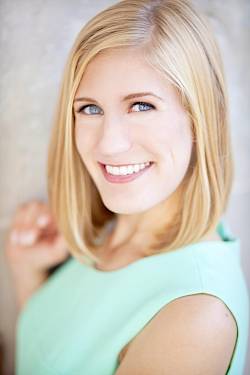
Katrina Galka, Olympia
Katrina Galka
Katrina Galka stammt aus den USA und studierte Gesang in Boston. Sie war dreifache Gewinnerin der regionalen Metropolitan Opera National Council Auditions und Preisträgerin des Mario Lanza Stipendiums. Als Blonde (Die Entführung aus dem Serail) debütierte sie an der Atlanta Opera, sang Atlanta (Xerxes) beim Glimmerglass Festival und Serpetta (La finta giardiniera) beim Caramoor International Music Festival. An der Portland Opera war sie Ensemblemitglied und gab dort Rollendebüts als Adina (L’elisir d’amore), Johanna (Sweeney Todd), Elvira (L’italiana in Algeri), Papagena und Frasquita (Carmen) sowie 2018 als Gilda (Rigoletto). In der Spielzeit 2017/18 war sie an der Arizona Opera engagiert und sang dort Cunegonde (Candide), Rosina (Il barbiere di Siviglia), Woglinde (Das Rheingold) sowie Clorinda (La Cenerentola). Auf der Konzertbühne war sie als Engel in Respighis Lauda per la Natività del Signore, in Händels Messiah, in Faurés Requiem, in Mozarts Exsultate Jubilate und in Bachs Johannes-Passion zu hören. 2019 gab sie ihr Europa-Debüt als Fritzi in Die Weiden an der Wiener Staatsoper. In der Spielzeit 22/23 debütierte sie an der Bayerischen Staatsoper als Blonde; die Rolle sang sie auch an der Hamburgischen Staatsoper und am Opernhaus Zürich. Ihre erste Königin der Nacht sang sie an der Arizona Opera. In der Spielzeit 2023/24 debütierte sie als First Niece (Peter Grimes) am Teatro alla Scala und als Lucia di Lammermoor an der New Orleans Opera. Zuletzt kehrte sie in einer Uraufführung von Fidileis Il nome della rosa an die Mailänder Scala zurück und debütierte als Janine-Ofwarren in Ruders’ The Handmaid’s Tale an der San Francisco Opera.
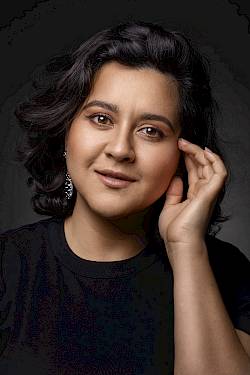
Adriana Gonzalez, Antonia
Adriana Gonzalez
Die französisch-guatemaltekische Sopranistin Adriana Gonzalez schloss ihr Studium 2012 an der Universidad del Valle de Guatemala ab. 2019 wurde sie beim Operalia-Wettbewerb mit dem ersten Preis sowie mit dem Zarzuela-Preis ausgezeichnet. Sie ist Mitglied des Atelier Lyrique de l'Opéra National de Paris und erhielt 2017 den Prix Lyrique des Cercle Carpeaux für ihre herausragende künstlerische Entwicklung. Weiter gewann sie den Ersten Preis beim Otto Edelmann Wettbewerb in Wien, den Zweiten Preis und Publikumspreis beim Tenor Viñas Gesangswettbewerb in Barcelona sowie den Teatro Real Preis in Madrid. 2017/18 war sie Mitglied des IOS am Opernhaus Zürich. Zu ihren vergangenen Rollen gehören Micaëla (Carmen) am Grand Théâtre de Genève, an der Oper Frankfurt, an der Niederländischen Nationaloper, an der Opéra National de Paris sowie in Toulon, Barcelona und Madrid, Liù (Turandot) an der Houston Grand Opera, der Opéra de Toulon, der Opéra National du Rhin sowie in Paris, Hamburg, Berlin und Dijon, Mimì (La bohème) in Barcelona und Toulon, Gräfin Almaviva (Le nozze di Figaro) an der Opéra National de Lorraine, der Oper Frankfurt, bei den Salzburger Festspielen sowie in Luxemburg, Frankfurt und Wien sowie die Titelrolle in Suor Angelica in Kopenhagen. Ausserdem sang sie das Verdi-Requiem mit dem Dallas Symphony Orchestra in Lissabon und Oviedo, Beethovens 9. Sinfonie in Parma und gab Liederabende in Frankfurt, Barcelona und Bozen. Sie veröffentlichte preisgekrönte Aufnahmen mit Iñaki Encina Oyón am Klavier (2020), mit Liedern von Isaac Albéniz (2021) sowie im Duett mit der Mezzosopranistin Marina Viotti (2023).
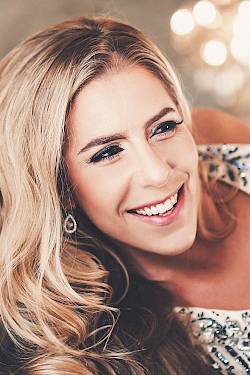
Lauren Fagan, Giulietta
Lauren Fagan
Lauren Fagan studierte in London an der Guildhall School of Music and Drama. 2019 vertrat sie ihr Heimatland Australien beim Wettbewerb «BBC Cardiff Singer of the World» und war Mitglied des Jette Parker Young Artist Programme. Sie gab Rollendebüts als Alcina bei den Händel-Festspielen in Karlsruhe, als Violetta (La traviata) an der Opera Holland Park in London und als Mimì (La bohème) an der Opera North. Ausserdem sang sie Woglinde in Wagners Ring am Royal Opera House Covent Garden, Roxana (Król Roger) an der Accademia Nazionale di Santa Cecilia und Donna Elvira (Don Giovanni) beim NHK Symphony Orchestra unter Paavo Järvi. Sie debütierte an der Bayerischen Staatsoper und an der Opéra de Paris in 7 Deaths of Maria Callas von Marina Abramović, als Magda (La rondine) an der National Opera in Australien sowie beim Glyndebourne Festival in The Wreckers von Ethel Smyth. An der State Opera of South Australia trat sie als Violetta auf, in Glasgow als Margarita Xirgu in Golijovs Ainadamar und beim Glyndebourne Festival als Helena in A Midsummer Night’s Dream. In Kanada debütierte sie in Händels Messiah mit dem Toronto Symphony Orchestra und als Figaro-Gräfin Almaviva mit der Canadian Opera Company. Zu ihren Konzerterfolgen gehören Beethovens Ah! Perfido mit dem Sydney Symphony Orchestra unter Simone Young, Vier letzte Lieder von R. Strauss in Malmö, Agnès in George Benjamins Written on Skin in London und St. Petersburg sowie Beethovens 9. Sinfonie mit den Hamburger Sinfonikern und der Oslo Philharmonic. Am Opernhaus Zürich war sie zuletzt als Der Komponist in Ariadne auf Naxos zu erleben.
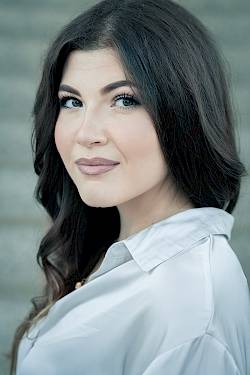
Maria Stella Maurizi, Stella
Maria Stella Maurizi
Maria Stella Maurizi begann ihr Studium am Rossini-Konservatorium in Pesaro. Sie war Gewinnerin des jeweils ersten Preises beim Internationalen Wettbewerb «Young Musicians – Città di Treviso» 2020 und beim 75th Competition for Young Opera Singers «European Community» am Teatro Lirico Sperimentale di Spoleto. Im Jahr 2021 sang sie Cio-Cio-San (Madama Butterfly) in Spoleto und Perugia; 2022 war sie in der europäischen Erstaufführung von Philip Glass’ The Passion of Ramakrishna mit dem Budapest Festival Orchestra unter der Leitung von Iván Fischer zu hören, sang Micaëla (Marius Constants Tragédie de Carmen) in Spoleto und Donna Anna (Don Giovanni) in Spoleto und Perugia. Im selben Jahr erhielt sie den «Premio Nazionale delle Arti» der italienischen Regierung. Im Jahr 2023 gewann sie Preise beim Concorso Lirico Internazionale «Anita Cerquetti» und beim Concorso Lirico Internazionale Riccardo Zandonai. Seit der Spielzeit 2023/24 ist sie Mitglied des Internationalen Opernstudios am Opernhaus Zürich und war u.a. als Helena (A Midsummer Night’s Dream) zu erleben.
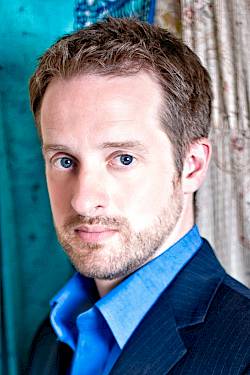
Andrew Foster-Williams, Lindorf / Coppélius / Le docteur Miracle / Le capitaine Dapertutto
Andrew Foster-Williams
Andrew Foster-Williams studierte in London an der Royal Academy of Music. Sein breites Repertoire reicht von Bach über Gluck, Händel und Mozart hin zu Britten, Debussy, Strawinsky und Wagner. Er ist sowohl auf der Opern- als auch auf der Konzertbühne zuhause und singt an Häusern wie dem ROH London, dem Teatro Real de Madrid, am Liceu in Barcelona, an der Washington National Opera, in der Carnegie Hall in New York sowie bei den Festivals in Salzburg, Bregenz und Glyndebourne. In jüngerer Zeit war er als Friedrich von Telramund (Lohengrin) und als Kurwenal (Tristan und Isolde) am La Monnaie in Brüssel zu erleben, in den konzertanten Aufführungen von Faust (Méphistophélès) am Théâtre des Champs-Élysées und Haydns Die Jahreszeiten beim Festival du Beaune, als Escamillo (Carmen) bei den Bregenzer Festspielen, als Golaud (Pelléas et Mélisande) am Theater Basel und als Lysiart in Webers Euryanthe am Theater an der Wien. Auf der Konzertbühne war er zudem mit dem Cleveland Orchestra unter Franz Welser-Möst, mit dem Mozarteum Salzburg unter Ivor Bolton, mit dem Royal Concertgebouw Orchestra unter Richard Egarr und dem Gulbenkian Orchestra unter Lorenzo Viotti zu erleben. Dabei sang er in Werken wie Bachs Matthäus-Passion, Brahms’ Ein deutsches Requiem, Beethovens 9. Sinfonie, Brittens War Requiem, Schönbergs Gurrelieder, Mahlers 8. Sinfonie, Janáčeks Glagolitische Messe und Mendelssohns Elias. Zahlreiche Einspielungen dokumentieren sein künstlerisches Schaffen. Die zuletzt erschienene Aufnahme von Faust unter Christophe Rousset wurde mit einem Opus Klassik ausgezeichnet.
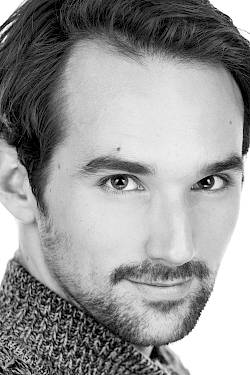
Nathan Haller, Andrès / Cochenille / Frantz / Pitichinaccio
Nathan Haller
Nathan Haller stammt aus Kanada und studierte Gesang an der Juilliard School in New York. 2013 war er Teilnehmer der Internationalen Meistersinger Akademie. Von 2015 bis 2017 war er Mitglied des Opernstudios OperAvenir am Theater Basel, wo er u.a. als Tamino (Die Zauberflöte), als Romeo in Blachers Romeo und Julia, in der Uraufführung Melancholia von Sebastian Nübling und Ives Thuwis, als Enoch Snow (Carousel) und als Oronte in Alcina zu erleben war. 2016 sang er Belmonte (Die Entführung aus dem Serail) am Akko Opera Festival in Israel. Auf der Konzertbühne war er u.a. am New York Festival of Song in der Carnegie Hall, mit dem russischen Kammerorchester St. Petersburg, in La Resurrezione unter William Christie und mit Masaaki Suzuki in Boston, New York, Leipzig und London zu hören. 2017/18 gastierte er an der Neuen Oper Wien als François in Leonard Bernsteins A Quiet Place, 2018/19 sang er Graf Albert (Die tote Stadt) mit der Nederlandse Reisopera und gastierte in Die Gezeichneten sowie als Albazar in Il turco in Italia am Opernhaus Zürich, wo er 2020/21 auch in der Hauptrolle von Mitterers Tapferem Schneiderlein zu sehen war. Seit der Spielzeit 2021/22 gehört Nathan Haller zum Ensemble des Opernhauses Zürich und war hier als Telemachos in der Uraufführung Die Odyssee, als Sir Hervey (Anna Bolena), Graf Elemer (Arabella), Bardolfo (Falstaff), Pedrillo (Die Entführung aus dem Serail), 1. Jude (Salome), Triquet (Jewgeni Onegin) und Gobin / Adolfo (La rondine) zu hören. Ausserdem sang er 2021 Lysander (A Midsummer Night’s Dream) an der Oper Malmö und 2023 Pong (Turandot) an der Deutschen Oper am Rhein.
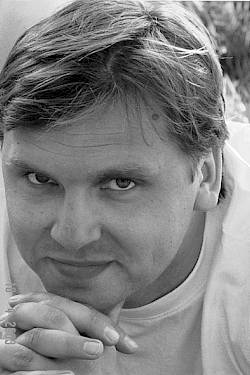
Valeriy Murga, Maître Luther
Valeriy Murga
Valeriy Murga studierte an der Ukrainischen Nationalen Musikakademie Kiew. Sowohl beim 41. Concours International de Chant in Toulouse 1996 als auch beim 7. Julian-Gayarre-Wettbewerb in Pamplona 1998 gehörte er zu den Finalisten. 1997 gewann er den zweiten Preis beim Maria Callas Grand Prix in Athen und konnte am 1999 Cardiff Singer of the World-Wettbewerb (BBC) teilnehmen. Von 1997 bis 1999 war er Solist der Ukrainischen Nationaloper Kiew, wo er neben vielen anderen Rollen Figaro und Don Giovanni, Germont, Escamillo, Onegin, den Fürsten Igor und Schaunard verkörperte. In seinem Repertoire befinden sich ausserdem Partien wie der Marchese di Posa (Don Carlo) und Schaklowity (Chowanschtschina). Am Opernhaus Zürich sang Valeriy Murga noch als Mitglied des IOS u. a. in Tosca (Sciarrone, Schliesser) und Rigoletto (Monterone); seit Beginn der Spielzeit 2000/01 ist er hier fest engagiert und war u. a. in Pique Dame (Jelezki), Carmen (Moralès), Salome (2. Soldat), Il barbiere di Siviglia (Fiorello/Ufficiale), La sonnambula (Alessio), Rigoletto (Marullo und Monterone), L’italiana in Algeri (Ali), Faust (Wagner) und in Familienopern wie u. a. Das Gespenst von Canterville (Dr. Bürkli), Robin Hood (Little John) und Das verzauberte Schwein (Schwein) zu hören. In Tiefland gastierte er am Liceu Barcelona und in L’italiana in Algeri an der Berliner Staatsoper Unter den Linden. In Zürich war er u.a. in Tosca (Mesner), Salome (Soldat), Die Odyssee (Eurylochos), Dialogues des Carmélites (Le Geôlier), La bohème (Dottor Grenvil), Alice im Wunderland (Schlafmaus/Zwiddeldum) und La rondine (Butler) zu erleben.
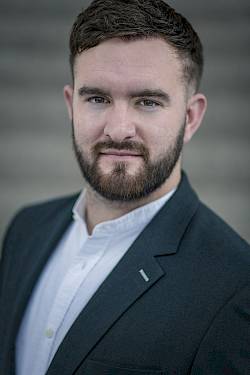
Steffan Lloyd Owen, Hermann
Steffan Lloyd Owen
Steffan Lloyd Owen, Bariton, stammt aus Wales. Er erhielt zahlreiche Gesangspreise des Vereinigten Königreichs, darunter den W. Towyn Roberts Scholarship Prize, den Blue Riband Osborne Roberts Memorial Prize beim National Eisteddfod of Wales und den Kathleen Ferrier Bursary Prize. Zu seinen jüngsten Auftritten zählen die Rollen des Sciarrone und des Kerkermeisters in einer halbszenischen Produktion von Tosca an der Seite von Sir Bryn Terfel und Kristine Opolais beim Llangollen International Musical Eisteddfod, Escamillo (Carmen) mit der Buxton Opera, die Titelrolle in Hans Krásas Kinderoper Brundibár an der Welsh National Opera und Arzt in Verdis Macbeth an der Mid Wales Opera. Auf dem Konzertpodium sang er Mendelssohns Elias beim Beaumaris Music Festival, Mozarts Requiem mit dem Orchestre National de Bretagne in Rennes und Beethovens C-Dur-Messe sowie Chorfantasie mit dem BBC National Orchestra and Chorus of Wales und dem Orchester der Welsh National Opera. Ab der Spielzeit 2024/25 gehört er zum Internationalen Opernstudio am Opernhaus Zürich.
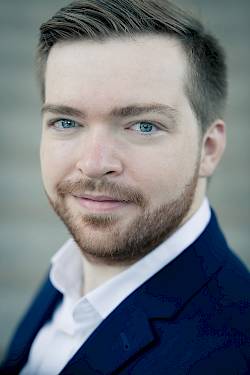
Christopher Willoughby, Nathanaël
Christopher Willoughby
Christopher Willoughby, Tenor, studierte an der Royal Holloway, University of London und an der Universität für Musik und darstellende Kunst Wien. Er war Finalist bei der Marilyn Horne Song Competition 2022 und zählt zu den Gewinnern der Charles Wood International Song Competition 2021. Im Rahmen des Atelier Lyrique beim Verbier Festival sang er 2023 Tom Rakewell in Strawinskys The Rake's Progress sowie den Narren in Bergs Wozzeck. Seit der Spielzeit 2023/24 ist er Mitglied des Internationalen Opernstudios am Opernhaus Zürich.
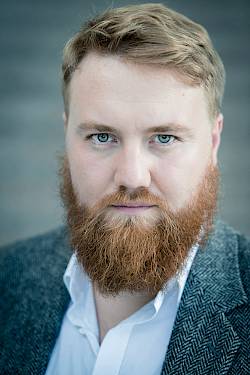
Maximilian Lawrie, Wolfram
Maximilian Lawrie
Maximilian Lawrie studierte am Magdalen College der University of Oxford und an der Royal Academy of Music in London. Dort war er als Tanzmeister in Ariadne auf Naxos, Interrogator 2 in Witch, als Rodolfo in La bohème, als Rinuccio in Gianni Schicci, als First Sailor in Dido and Aeneas, als Don Ottavio in Don Giovanni, als Nemorino in L’elisir d’amore, als Lysander in A Midsummer Night’s Dream, in der Titelrolle von Werther und als Faust in Mefistofele zu hören. Zudem sang er Rodolfo an der Rogue Opera sowie Don José in Carmen an der Rogue Opera und der Cambridge University Opera Society. Seit der Spielzeit 2022/23 ist er Mitglied des Internationalen Opernstudios am Opernhaus Zürich.
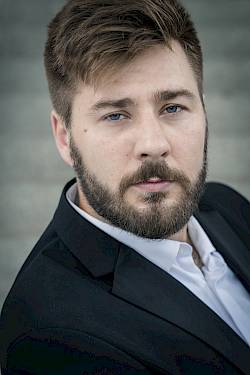
Lobel Barun, Wilhelm
Lobel Barun
Lobel Barun, Bass, stammt aus Kroatien. Er studierte bei Alexei Tanovitski an der Musikhochschule seiner Heimatstadt Zagreb. 2023 gewann er beim Internationalen Gesangswettbewerb «Lazar Jovanović» in Belgrad den Spezialpreis «Željko Lučić». Im selben Jahr gab er am Kroatischen Nationaltheater in Zagreb sein Debüt als Bacchus in Boris Papandopulos Amphitryon. Ausserdem trat er mit der Zagreber Philharmonie in der Lisinski-Konzerthalle auf und verkörperte Salieri in Rimski-Korsakows Mozart und Salieri im Opernstudio der Zagreber Hochschule. Weitere Rollen umfassen Le Surintendant des plaisirs (Massenets Cendrillon) an der Musikhochschule in Zagreb, den zahmen Raben Moses (Igor Kuljerićs Animal Farm) in der Lisinski-Konzerthalle, Carceriere (Tosca) am Kroatischen Nationaltheater sowie Tobias Mill (Rossinis La cambiale di matrimonio) im kroatischen Vis. Ab der Spielzeit 2024/25 gehört er zum Internationalen Opernstudio am Opernhaus Zürich.
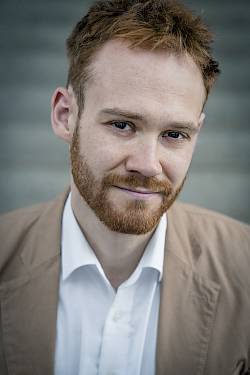
Max Bell, Wilhelm
Max Bell
Maximilian Bell, Bass, studierte bei Michail Lanskoi und Manfred Equiluz an der Musik und Kunst Privatuniversität der Stadt Wien. Seine Ausbildung ergänzte er durch Meisterkurse bei Angelika Kirchschlager, Adrian Eröd und Gerhard Kahry. Der geborene Österreicher übernahm bereits Rollen wie Spinelloccio (Gianni Schicchi) und Norton (La cambiale di matrimonio) bei den Bregenzer Festspielen, Osmin (Die Entführung aus dem Serail) im Rahmen der Sommerakademie der Wiener Philharmonikern in Wien und Graz, Snug (A Midsummer Night’s Dream) am Theater Akzent in Wien, die Basspartie in Bernsteins Mass im Wiener Musikverein, Rocco (Fidelio) in einer Kinderproduktion im österreichischen Baden, Sarastro (Die Zauberflöte) im Wiener MuTh sowie Bartolo (Le nozze di Figaro) in einer Wandertheaterproduktion. Ab der Spielzeit 2024/25 gehört er zum Internationalen Opernstudio am Opernhaus Zürich.
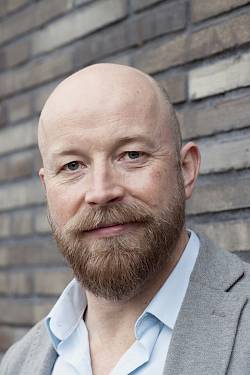
Daniel Norman, Spalanzani
Daniel Norman
Daniel Norman begann seine musikalische Laufbahn als Knabensopran der Kathedrale von Lichfield und Chorstipendiat am New College in Oxford. Er studierte zunächst Ingenieurswissenschaften, bevor er seine Gesangsausbildung u. a. in Tanglewood fortsetzte und Liedgesang an der Britten-Pears School studierte. Anschliessend war er Mitglied des Opernstudios der Royal Academy of Music London. Sein besonderes Engagement für Liedgesang führte ihn mit Konzerten u. a. an die Wigmore Hall, an den Kings Place in London sowie zum Oxford Lieder Festival. Daniel Norman war u. a. an Opernhäusern wie dem Royal Opera House Covent Garden, der English National Opera, der Nederlandse Reisopera, der Opera Boston, der Opéra National de Paris, der Bayerischen Staatsoper München, der New Israeli Opera, der Scottish Opera Glasgow, der Arena di Verona und dem Mariinski-Theater Sankt Petersburg zu erleben. Dabei sang er Partien vom frühen Barock bis zu zeitgenössischen Werken. Einen besonderen Schwerpunkt widmet er der Musik von Benjamin Britten. So erschien etwa eine CD mit Brittens Winter Words und Who Are These Children. In jüngster Zeit debütierte er in Nixon in China an der Staatsoper Hannover sowie in Puccinis Il tabarro und Gianni Schicchi an der Welsh National Opera. Am Opernhaus Zürich sang er Scaramuccio (Ariadne auf Naxos) und ist in der Spielzeit 2024/25 hier auch in Rigoletto und Salome zu hören.
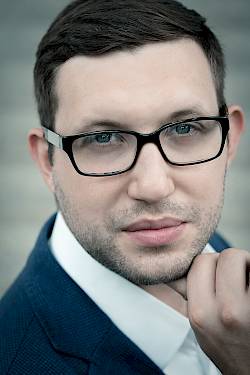
Stanislav Vorobyov, Crespel
Stanislav Vorobyov
Stanislav Vorobyov stammt aus Russland und studierte am Moskauer Konservatorium. Er war Mitglied des Internationalen Opernstudios und ist seit der Spielzeit 2018/19 Ensemblemitglied am Opernhaus Zürich. Er war hier u. a. als Colline (La bohème), Alidoro (La Cenerentola), Oberpriester (Nabucco), Notar (Der Rosenkavalier), Reinmar von Zweter (Tannhäuser), Faust (Der feurige Engel), Zaretsky (Eugen Onegin), Cesare Angelotti (Tosca), Fünfter Jude und 1. Nazarener (Salome), Lord Rochefort (Anna Bolena), Dottor Grenvil (La traviata), Prospero Salsapariglia (Viva la mamma), Crébillon (La rondine) und Zuniga (Carmen) sowie zuletzt als Roberto (I vespri siciliani) und Roucher (Andrea Chénier) zu hören. Ausserdem sang er Don Basilio (Il barbiere di Siviglia) bei den Bregenzer Festspielen, Nourabad (Les Pêcheurs de perles) an der Oper Vlaandern und in Luxemburg sowie Ombra di Nino (Semiramide) im Concertgebouw Amsterdam. Bei den Bregenzer Festspielen 2022 war er als Onkel Bonzo in Madama Butterfly und als Il capitano/ L’ispettore in Umberto Giordanos Siberia zu erleben. 2023 kehrte er als Onkel Bonzo nach Bregenz zurück. 2024 war er zudem als Colline (La bohème) am Tokyo Metropolitan Theater und am ROHM Theatre Kyoto zu Gast.
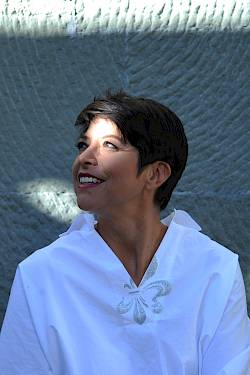
Judith Schmid, La Voix de la tombe
Judith Schmid
Judith Schmid, Schweizer Mezzosopranistin, hat ihre musikalische Ausbildung an der Hochschule der Künste Bern in Musik und Bewegung sowie an der Guildhall School of Music and Drama im Gesang absolviert. Ihre Leidenschaft für die Bühnenkunst führte sie nach dem Studium auf die Opern- und Konzertbühne, wo sie sich auch dem Lied und Oratorium widmet. Mit über 25 Jahren Erfahrung begeistert sie das Publikum u.a. am Opernhaus Zürich, ihrem Stammhaus, wo sie langjähriges Ensemblemitglied war und immer wieder als Gast engagiert wird, sowie am Staatstheater Nürnberg. Ihre künstlerische Entwicklung spiegelt sich in einer Vielzahl von Rollen wider, die sie im Laufe der Jahre verkörpert hat. Als lyrischer Mezzo brillierte sie in Hosenrollen wie Nicklausse in Les Contes d’Hoffmann, Sesto in Giulio Cesare und Smeton in Anna Bolena, bevor sie sich in Richtung dramatisches Fach weiterentwickelte. Zu ihren Rollen zählen die Titelpartie in Carmen, Suzuki in Madama Butterfly sowie Adelaide in Arabella, Polina in Pique Dame, Federica in Luisa Miller und Erda in Rheingold und Siegfried.Im Konzertbereich hat Judith Schmid mit renommierten Orchestern wie dem Symphonieorchester des Bayerischen Rundfunks und dem Tonhalle Orchester Zürich unter der Leitung namhafter Dirigenten wie Marco Armiliato, Nello Santi, Franz Welser-Möst und Mariss Jansons zusammengearbeitet. An der Hochschule für Musik Luzern seit 2017 tätig, gibt Judith Schmid ihre umfangreiche Gesangs- und Bühnenerfahrung als künstlerische Professorin an Studierende weiter und unterstützt deren individuelle sängerische Reifung. Ihre künstlerische Laufbahn ist durch zahlreiche Radio- und Fernsehaufzeichnungen sowie DVD-Produktionen dokumentiert. Besonders hervorzuheben ist das Album Rosenblätter, das 2008 vom Schweizer Radio SRF 2 Kultur zu den besten CDs gewählt wurde. Am Luzerner Theater gibt Judith Schmid 2025/26 ihr Debüt als Auntie in Benjamin Brittens Peter Grimes.
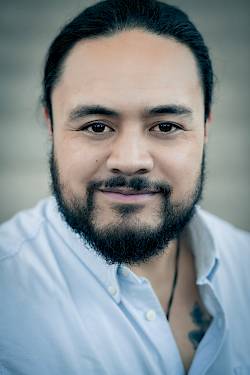
Samson Setu, Peter Schlémil
Samson Setu
Samson Setu, Bariton, begann seine Ausbildung in Neuseeland, wo er Mitglied des Dame Kiri Te Kanawa Programme for Young Singers war, und studierte am Royal College of Music in London. Ab 2020 war er Mitglied im Lindeman Young Artist Program der Metropolitan Opera New York, wo er in Don Carlo einen der Flämischen Deputierten sang. Er war Finalist bei der Dame Malvina Major Aria Competition und der IFAC Handa Australia Singing Competition. An der New Zealand Opera war er in Gilbert and Sullivans Trial By Jury als Usher zu hören. Seit der Spielzeit 2023/24 ist er Mitglied des Internationalen Opernstudios am Opernhaus Zürich, wo er u. a. Nick Bottom (A Midsummer Night’s Dream) sang.


